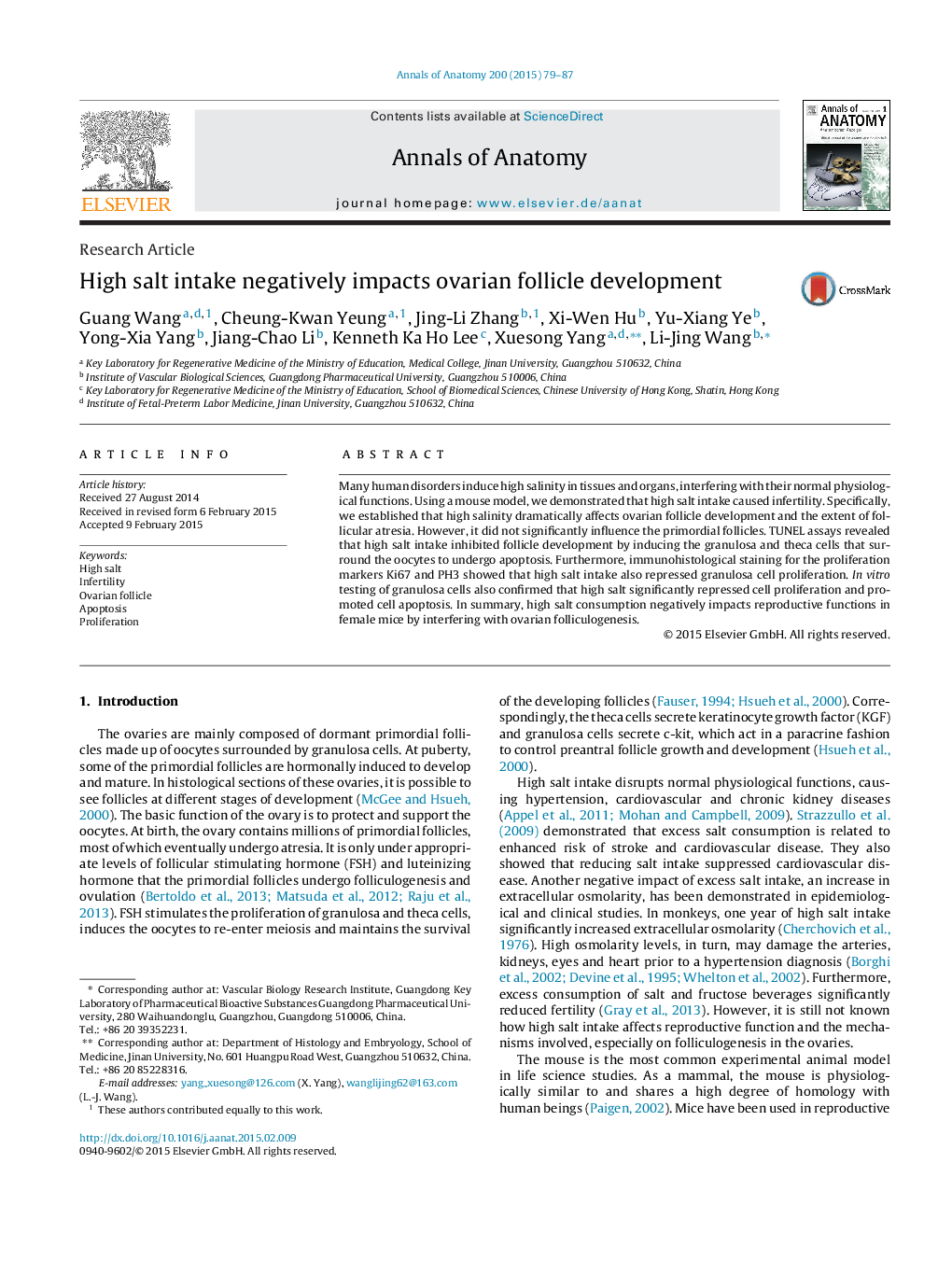| Article ID | Journal | Published Year | Pages | File Type |
|---|---|---|---|---|
| 8460956 | Annals of Anatomy - Anatomischer Anzeiger | 2015 | 9 Pages |
Abstract
Many human disorders induce high salinity in tissues and organs, interfering with their normal physiological functions. Using a mouse model, we demonstrated that high salt intake caused infertility. Specifically, we established that high salinity dramatically affects ovarian follicle development and the extent of follicular atresia. However, it did not significantly influence the primordial follicles. TUNEL assays revealed that high salt intake inhibited follicle development by inducing the granulosa and theca cells that surround the oocytes to undergo apoptosis. Furthermore, immunohistological staining for the proliferation markers Ki67 and PH3 showed that high salt intake also repressed granulosa cell proliferation. In vitro testing of granulosa cells also confirmed that high salt significantly repressed cell proliferation and promoted cell apoptosis. In summary, high salt consumption negatively impacts reproductive functions in female mice by interfering with ovarian folliculogenesis.
Related Topics
Life Sciences
Biochemistry, Genetics and Molecular Biology
Cell Biology
Authors
Guang Wang, Cheung-Kwan Yeung, Jing-Li Zhang, Xi-Wen Hu, Yu-Xiang Ye, Yong-Xia Yang, Jiang-Chao Li, Kenneth Ka Ho Lee, Xuesong Yang, Li-Jing Wang,
